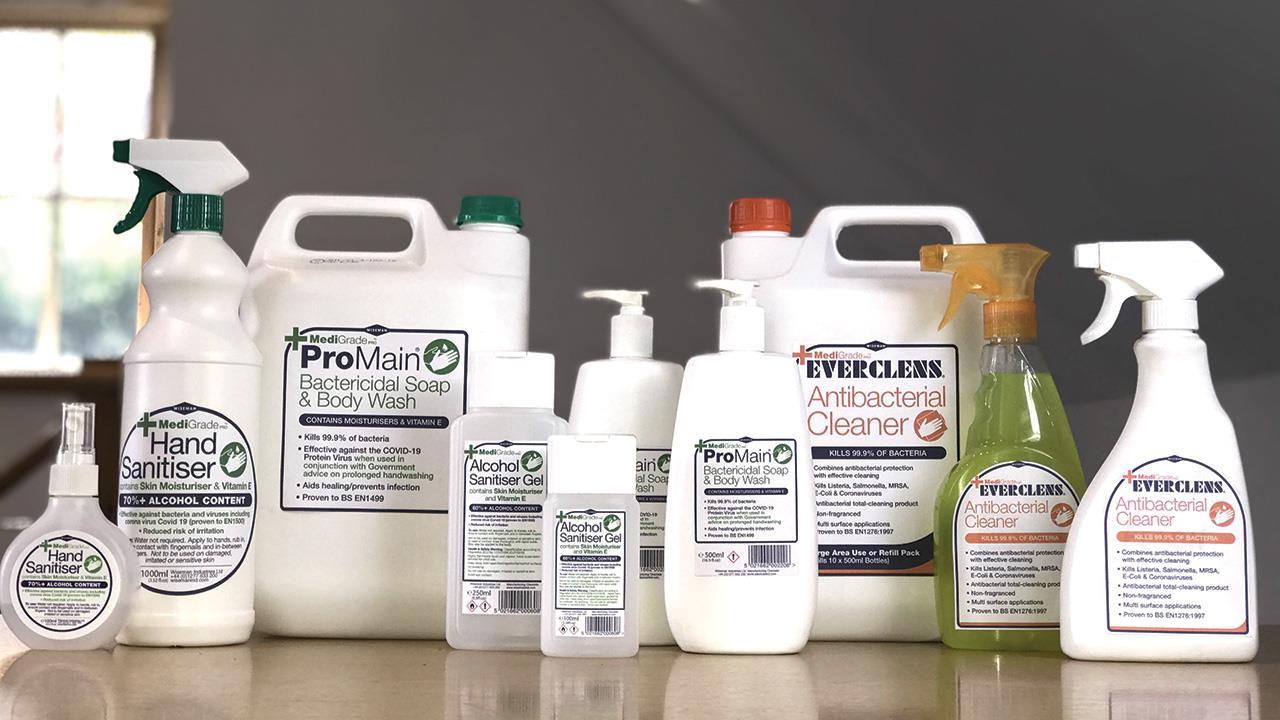

Harvey Wiseman, Chief Executive at Wiseman Industries, looks at how industry is having to change hygiene practices in light of COVID-19.
The COVID-19 pandemic impacted hugely on plumbing merchants, plumbers, and customers, with work coming to an abrupt end. Emergency callouts have been impacted by the necessary closure of many merchants, furloughing of staff, as well as social distancing with customers and limited to no access to properties.
Many plumbers have continued working during this period, from dealing with burst pipes, flooding, boiler breakdowns to having no water; all crucial at this unprecedented time with a greater need to keep properties clean and sanitised. For the first time in recent memory, the plumbers are now needing to find a ‘new norm’ in how they carry out their trade. From a stringent approach to cleaning everything they come in to contact with, to how they navigate and engage with a person’s property.
Government guidelines for working safely during COVID-19 are particularly comprehensive for plumbers, with numerous considerations to bear in mind.
Meeting the new health and safety requirements means plumbers need to add to their first aid box. They will need to verbalise and demonstrate to customers what they are doing to combat the spread of the COVID-19 virus.
While regular personal hygiene, based on government and World Health Organisation guidelines is to use 60%+ alcohol sanitiser spray or gel throughout the day, it is essential plumbers are using antibacterial cleaners on any surface they are coming into contact with. This starts from when leaving their homes, crossing the threshold of any business, to the moment they enter and leave each customers property. Given the constant use of alcohol, ideally they will be wanting something with skin moisturisers to prevent the drying out of hands.
Their vehicles need to be constantly sanitised by spraying handle areas, steering wheels, gear sticks, seats, dashboards, and the interior as a whole. They will then need to wipe all materials and surface areas they are coming into contact with such as tools boxes and tools, piping, and fixtures and fittings with one-use only paper towels. These must then be disposed of and sealed in a plastic bag, including any plastic gloves used then taken offsite and not left on the property.
Customers can be generous and offer beverages. These should be declined and at this time it is recommended to be wearing a face mask. There is no such thing as being over-cautious or too much cleaning and washing.
Adam Marchant, owner of HQO Plumbing in West Sussex, has had to make a number of changes to his business due to COVID-19. He explained: “This is not something I have needed to consider at this level before. Health and safety is followed on all my work but this is now on a whole new level. It’s impacting on my callout costs in terms of time necessary to regularly sanitise all my tools and materials, to how much I spend on purchasing sanitisers and cleaners.
“Customers are now hugely conscious, especially those needing to shield. I must offer reassurance and ‘peace of mind’ with high quality professional products that are guaranteed to sanitise and clean most surfaces or they will choose someone else.”
Merchants have also had to make big modifications to how they run their businesses over this period.
Jason Clyne, Director of STC Plumbing in Greater London, said: “Our customers know they can expect us to supply all the products they need to get their plumbing jobs done. If you had asked me three months ago that I would have to add alcohol hand sanitiser, gel, antibacterial cleaners, and body wash barrier cream to our range, I would have laughed.
“As an independent merchant with four large branches that serve thousands of plumbers, we need to stock what are now essential sanitising and antibacterial products. We ourselves need to ensure all our staff are catered for and our counters offer free sanitising for customers when they come in. Price point and quality are key factors our customers have come to expect of us and as a business we make sure we pass on.”
Wiseman’s own factory production has also needed to align itself to the ‘new norm’ incorporating social distancing, suitable screens and readily available PPE. I cannot see this changing any time soon and it will be interesting to see how the plumbing sector evolves to meet these new expectations.
If you'd like to keep up-to-date with the latest developments in the heating and plumbing industry, why not subscribe to our weekly newsletters? Just click the button below and you can ensure all the latest industry news and new product information lands in your inbox every week.